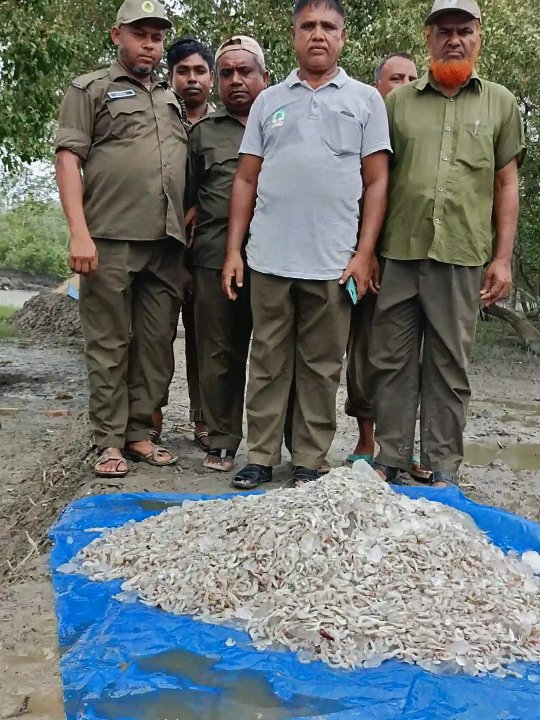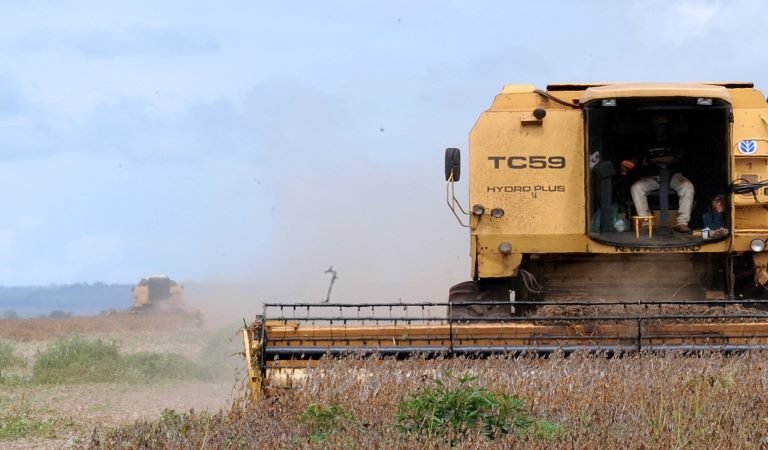- The first month of a three-month ban on anyone entering Bangladesh’s Sundarbans mangrove forest has seen 59 people from forest-dependent communities arrested, sparking criticism of the government’s approach.
- Community members and conservation activists have called for an end to the arrests, and have faulted the government for not giving the compensation it promised to the communities to help tide them over during the June-August ban.
- The government, which says the ban is necessary to ease pressure on the Sundarbans’ wildlife during the breeding season, says the compensation still hasn’t been approved by the state treasury.
- Some 600,000 people depend directly or indirectly on the Sundarbans’ resources for their livelihood, which includes fishing and harvesting honey; tourists are also banned from entering the world’s largest mangrove forest during this three-month period.
Authorities in Bangladesh have been slammed for harassment and lack of compassion after arresting 59 people from forest-dependent communities for violating a ban on entering the Sundarbans, the world’s biggest mangrove forest.
The arrests occurred in June, the first month since the ban came into force. The controversial policy is expected to last three months, from June to August, to protect the region’s wildlife during their breeding season, according to officials.
But the ban has left some 600,000 people who have traditionally relied on resources from the Sundarbans completely deprived of their means of livelihood overnight. Compounding the problem, the government still hasn’t given out the promised compensation meant to tide the communities over during the ban.
“Since birth, I have seen my father go to the forest almost every day to fish, collect crabs or golpata [nipa palm, Nypa fruticans], or extract honey,�? says Serajul Islam, 42, from the village of Datina Khali, close to the forest in the Satkhira Range of the Sundarbans.
“I joined him when I became an adult. My family’s livelihood is totally dependent on the forest,�? he says. “Without compensation, we have no other option but to enter the forest. Does the government want us to starve?�?
Of the 600,000 people who depend directly or indirectly on the Sundarbans’ resources for their livelihood, 12,000 regularly enter the forest throughout the year, for which they have a boat license (BLC) or a temporary pass. The government earns up to 60 million taka ($638,000) a year from issuing these permits, which allow the holders to enter the Sundarbans from one of 16 forest stations located along its periphery.
That’s no longer the case under the ban. According to a statement from the Forest Department, 59 people were arrested and various equipment seized, including fishing nets and boats, from different parts of the forest in June.
“In line with the ban, we are preventing people from entering the forest and those who are violating directions are being detained under law,�? said Md Abu Naser Mohsin Hossain, the department’s divisional forest officer for the Sundarbans.
According to the Bangladesh government’s decision to impose the ban, a copy of which has been obtained by Mongabay, a compensation package was to be provided to the affected families for the period of the ban. But the proposed compensation hasn’t been approved by the government treasury.
“We have sent the proposal to allocate a compensation package worth 1 sack [40 kilograms, or 88 pounds] of rice for each family who possesses a yearly BLC,�? Md Abu Naser said. “Though the amount is small, it is a start. Unfortunately, we have yet to get any response from the Ministry of Finance.�?
The proposed compensation package is similar to what the government is providing to fishing communities under a program that imposes a two-month ban on fishing of hilsa (Tenualosa ilisha), a commercially important species that accounts for an eighth of Bangladesh’s total fish production.

‘Lacks compassion and rationale’
Conservationists have criticized the government’s use of arrests to enforce the Sundarbans entry ban, especially given the fact that it still hasn’t compensated the communities for blocking their access to their only source of livelihood.
“The government should have arranged the compensation first, before initializing such a conservation initiative,�? said Munjurul Hannan Khan, former additional secretary in the Ministry of Environment, Forest and Climate Change.
“The way the ban is being implemented, poor people will be forced to violate it as they are living hand to mouth,�? Khan told Mongabay.
Syeda Rizwana Hasan, chief executive of the Bangladesh Environmentalist Lawyers Association (BELA), urged the government to end the arrests. She said that since the forest department has proposed a compensation package, authorities should be well aware that the forest-dependent communities will not survive without support.
“Why did the department then have these villagers — who consider access to forest resources their traditional right — arrested?�? she said. ‘The forest department is not only corrupt, but it also lacks compassion and rationale. Such harassment of people must stop.�?

The Sundarbans
The Sundarbans lies in both Bangladesh and India, facing the Bay of Bengal in the south, and spanning a total area of around 10,000 square kilometers (3,900 square miles).
The Bangladesh portion of the mangrove forest measures 6,017 km2 (2,323 mi2), according to the Forest Department, accounting for 4% of the country’s total land area and 40% of its country’s forests.
The Sundarbans is a unique habitat for 269 known species of animals, from the iconic Bengal tiger (Panthera tigris) and the Ganges river dolphin (Platanista gangetica), to fishing cats (Prionailurus viverrinus), smooth-coated otters (Lutrogale perspicillata), spotted deer (Axis axis), various species of monkeys and more. The mangrove forest is also home to 334 known species of trees, shrubs and epiphytes.
Some 1,395 km2 (539 mi2) of Bangladesh’s Sundarbans have been declared a UNESCO World Heritage Site, encompassing the three wildlife sanctuaries of Sundarbans East, Sundarbans West, and Sundarbans South.
Banner image: Fishermen in the Sundarbans, Bangladesh. Image by Mashrik Faiyaz via Flickr (CC BY-ND 2.0).
Citations:
Rahman, L. M. (2016). Forest dependent people. In Z. H. Bhuiyan, A. B. Thakur, M. S. Uddin, & A. A. Hossain (Eds.), National Tree Planting Campaign and Tree Fair (pp. 57-60). Forest Department, Ministry of Environment and Forests, Government of the People’s Republic of Bangladesh.
Haque, M. Z., Reza, M. I., Alam, M. M., Ahmed, Z. U., & Islam, M. W. (2016). Discovery of a potential site for community-based sustainable ecotourism in the Sundarbans reserve forests, Bangladesh. International Journal of Conservation Science, 7(2), 553-566. Retrieved from https://ijcs.ro/public/IJCS-16-30_Haque.pdf
Feedback: Use this form to send a message to the author of this post. If you want to post a public comment, you can do that at the bottom of the page.














